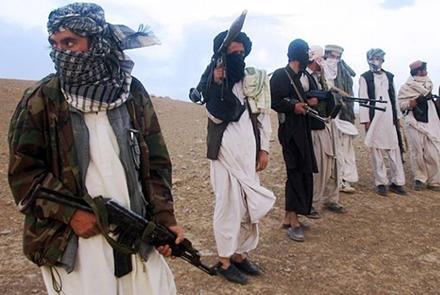A delegation approved by the Taliban's leader Mullah Haibatullah Akhundzada visited Islamabad this week for exploratory talks on restarting peace negotiations to end the 16-year war in the country, two senior officials in the movement told Reuters.
The three-member Taliban delegation from Qatar included Shababuddin Dilawar and Jan Mohammad Madani from the Taliban's political office in Qatari capital as well as the brother-in-law of Mullah Jacoob, son of the late Taliban founder Mullah Mohammad Omar, the sources said told Reuters.
They met representatives of Afghan politician Syed Hamid Gilani, Chairman of Mahaz-e-Milli Party, a senior aide to Gilani confirmed on condition of anonymity, it said. Gilani's office did not respond to queries.
The Taliban's Haqqani network last week released 14 Afghan army soldiers in the eastern province of Paktia as a goodwill gesture ahead of the talks, according to both the Taliban officials and the aide to Gilani, the report said.
It was unclear if any progress was made in the unofficial meetings with a representative of a prominent Afghan politician. Many previous attempts have failed to revive direct talks that ended nearly as soon as they started in 2015.
The Islamabad talks on Monday followed another back-channel meeting over the weekend in Turkey between individuals with Taliban connections and representatives of Hizb-e-Islami.
The Reuters report said that a spokesman for President said on Wednesday he was not aware of the Islamabad talks, while the Taliban did not respond to queries.
Both sides on Monday denied participating in the Turkey talks.
However, two senior Taliban officials said on condition of anonymity that Akhundzada had approved Monday's exploratory meeting in Islamabad on restarting talks to end the war, the report said.
The US has piled pressure on to Pakistan to persuade the insurgents' leaders to negotiate as well as crack down on alleged Taliban safe havens inside the country - tactics that Pakistan has said are incompatible.
Though the Afghan government still controls less than two-thirds of the country, US Ambassador to the United Nations Nikki Haley on Wednesday touted the new strategy as a success and specifically mentioned possible future direct talks with the Taliban.
"The US policy on Afghanistan is working," Haley told reporters in New York on Wednesday after travelling to Kabul at the weekend with the UN Security Council. "We are seeing that we're closer to talks with the Taliban and the peace process than we've seen before."
She said Afghan officials had told the envoys that since the US strategy was put in place "they're starting to see the Taliban concede, they are starting to see them move towards coming to the table".
Haley said that the entire peace process was Afghan-led and owned, adding: "We don't think that we need to facilitate the peace process, we think we need to support the peace process."

